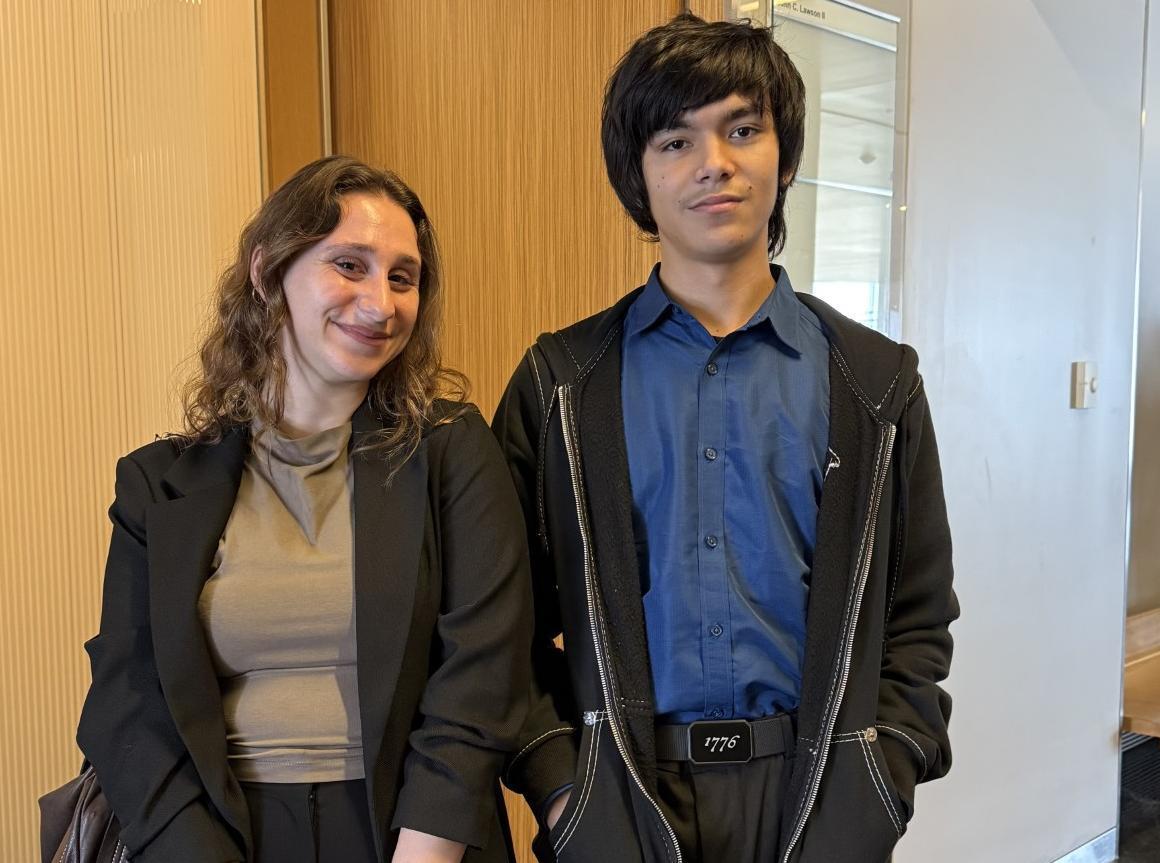
When we first met Riley last spring, he was nearing the end of his junior year, but the weight of academic struggles and probation requirements loomed over him. Despite his best efforts, he was falling behind, and the lack of adequate support from his school made it even harder to meet his goals. That’s when the Youth Justice Education Clinic (YJEC) stepped in.
“Supporting Riley on his journey was a reminder of why we do this work—to ensure every young person gets the support they deserve,” says YJEC social worker Cindy Galvan. “Seeing him gain confidence, improve academically, and ultimately exit the system is exactly the kind of impact we strive for at YJEC. This was a team effort, and I’m incredibly proud to have played a role in his success.”
The YJEC at Loyola Law School’s Center for Juvenile Law and Policy provides client-centered, holistic education advocacy for young people who are criminalized and pushed out of schools based on factors such as race, disability, and/or gender identity. YJEC works to dismantle the school-prison nexus by advocating for school stability, community-led accountability, and limiting law enforcement on school campuses.
After a thorough review of Riley’s records, YJEC staff attorney Stacy Nuñez '22 discovered that he had years of documented disability-related needs that had gone unaddressed by the school district. She immediately requested a special education evaluation, ensuring Riley would finally receive the services and accommodations he needed.
That summer, law clerk and former clinical student Nicole Abnous '26 stepped in to advocate for Riley at his first Individualized Education Program (IEP) meeting. She successfully argued for the specialized support and services that would allow him to access his education. But her work didn’t stop there. Throughout the school year, Abnous continued to check in with Riley, monitor his progress, and remove any barriers standing in his way. She also zealously advocated for him in court, urging the judge to consider early termination of his probation—a decision that could change the trajectory of his future.
“Joining YJEC is an opportunity I’ll forever be grateful for,” says Abnous. “YJEC has helped me grow as a student and individual. It’s always a pleasure working with my colleagues, supervisors, and clients. The clinic allows you to work hands on and take lead on your client’s cases, which has helped me find and begin shaping my advocacy style. To me, YJEC will always remind me of a family I found on campus and the space from which I was able to grow from the bashful law student I was during my 1L year.”
With the right support in place, Riley’s grades improved, and he gained the confidence to advocate for himself. No longer hesitant to ask for help, he even took the initiative to enroll in a dual enrollment class that would earn him college credit. YJEC’s Galvan also played a key role, helping Riley complete his community service requirements and ensuring he stayed on track.
Because of Abnous’ unwavering advocacy—under the expert supervision of Nuñez—Riley’s case was dismissed, and his record was sealed. He is no longer burdened by the system that once seemed inescapable.
It’s not every day that we get to see our clients exit the system, but YJEC worked tirelessly to ensure that Riley had that chance. His story is a testament to the power of holistic advocacy and the impact of fighting for an equitable education system where every young person has the opportunity to learn in a safe, welcoming, and affirming environment.
Now 18, Riley has given us permission to share his story and photo, serving as an inspiration to all those fighting for a second chance.